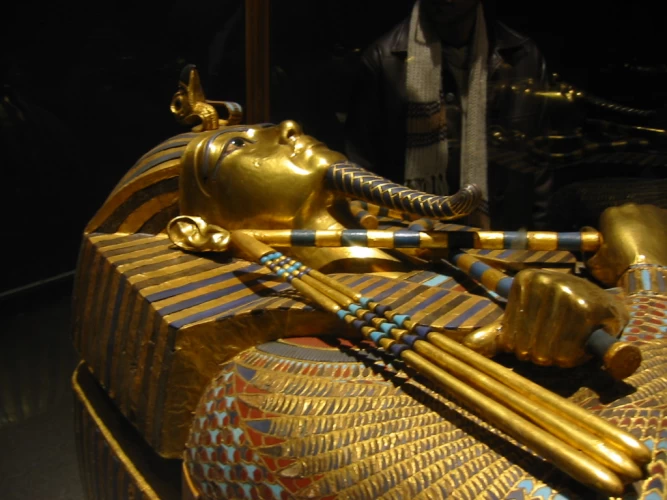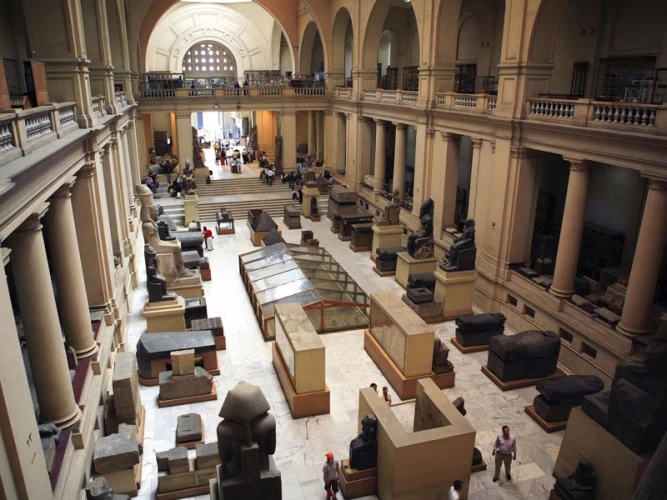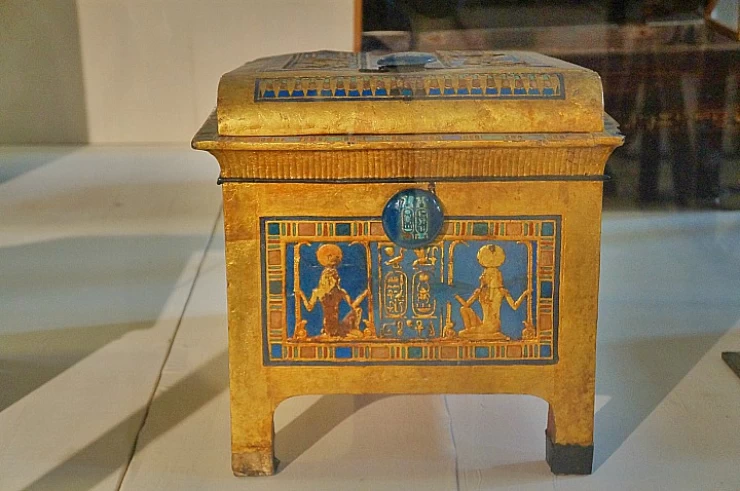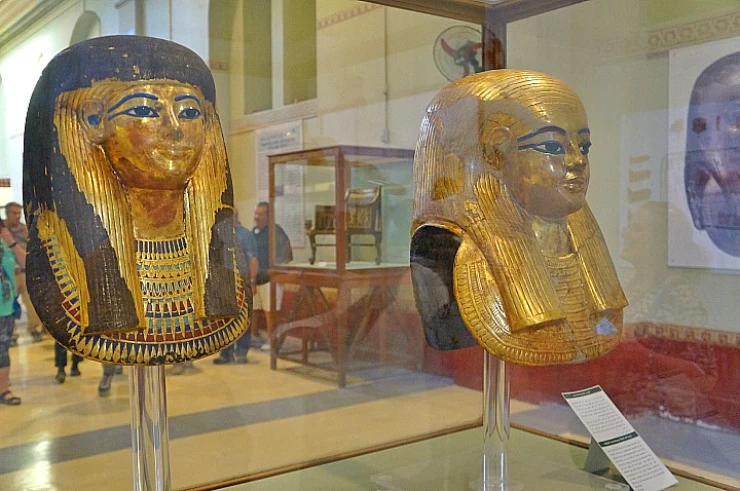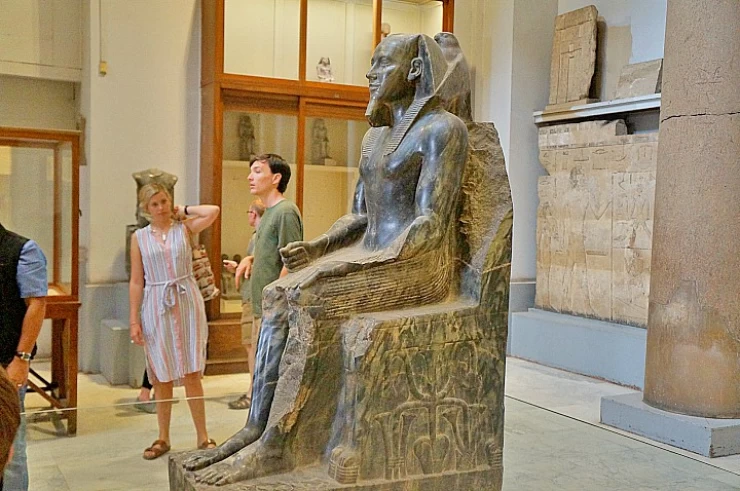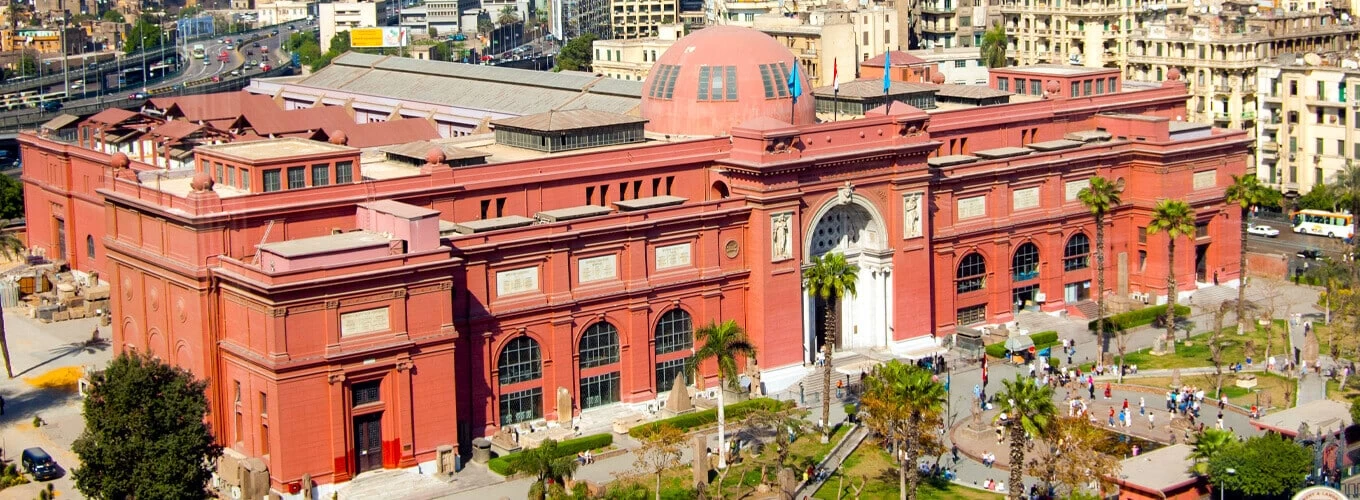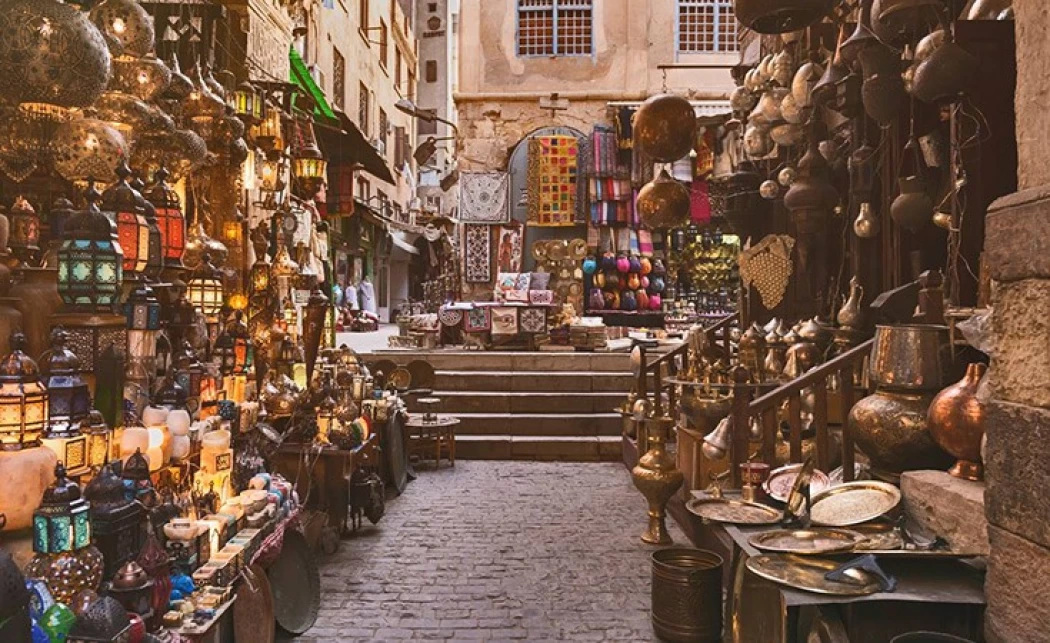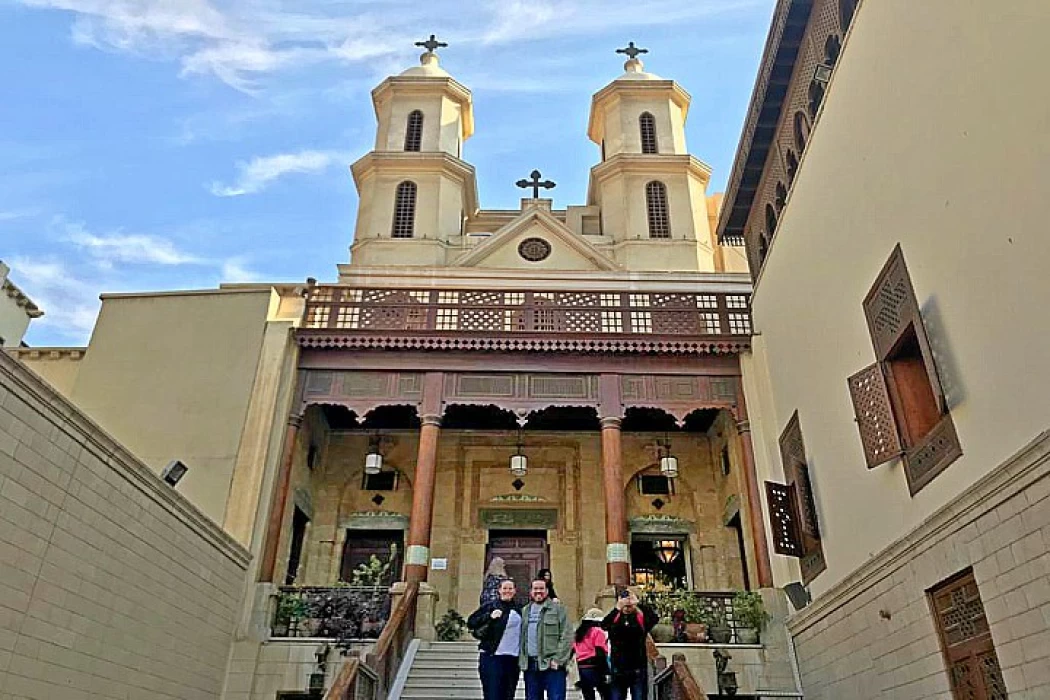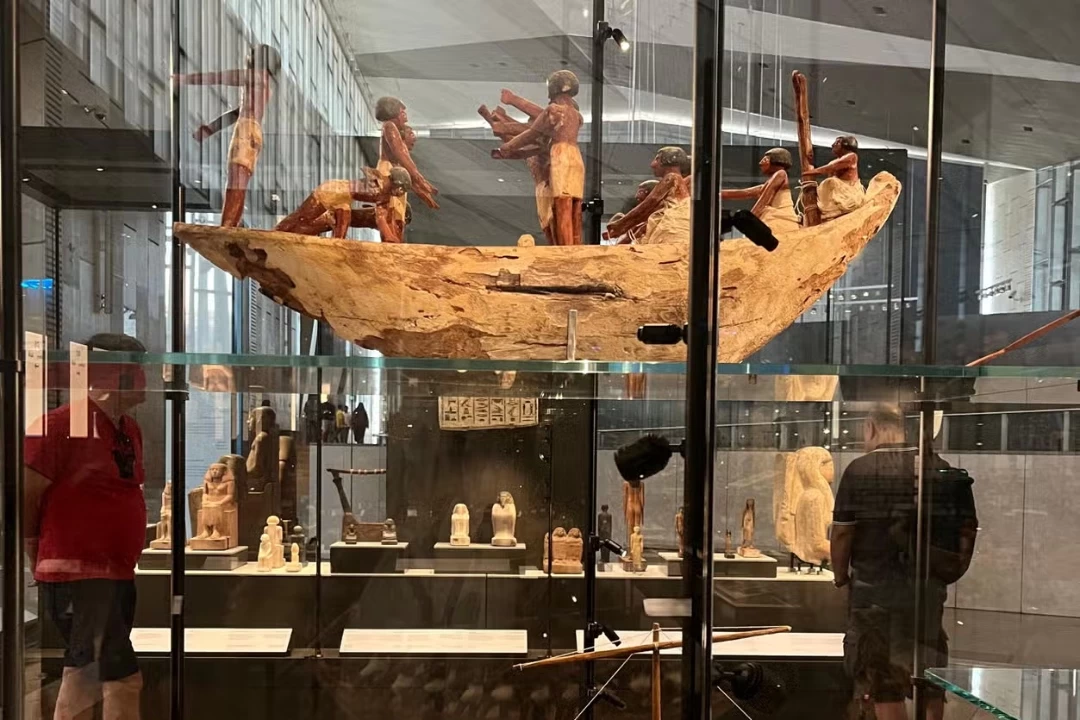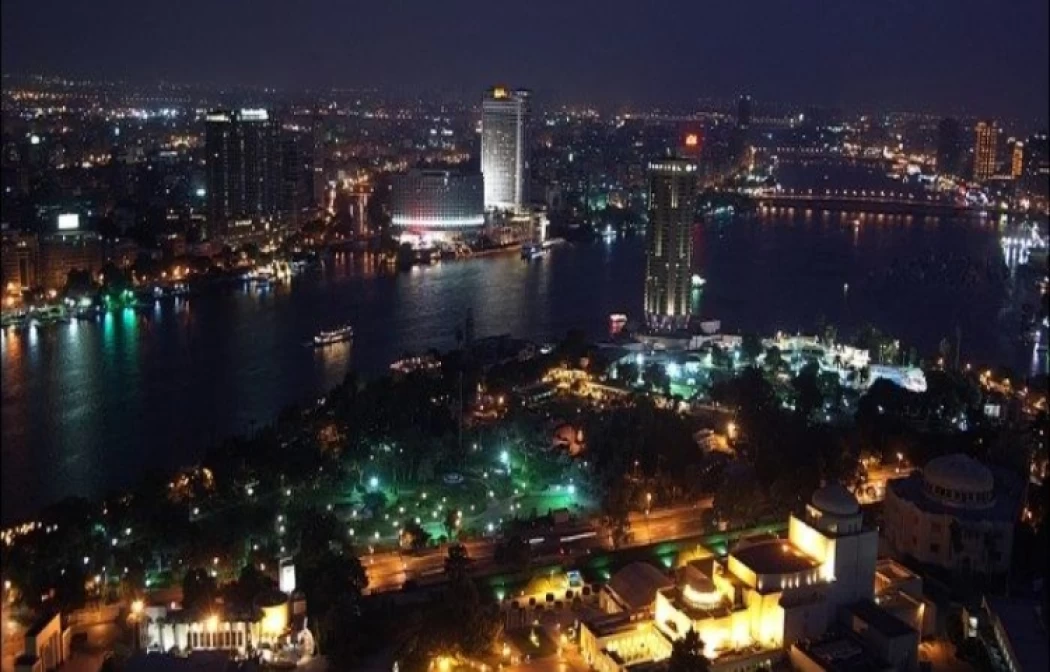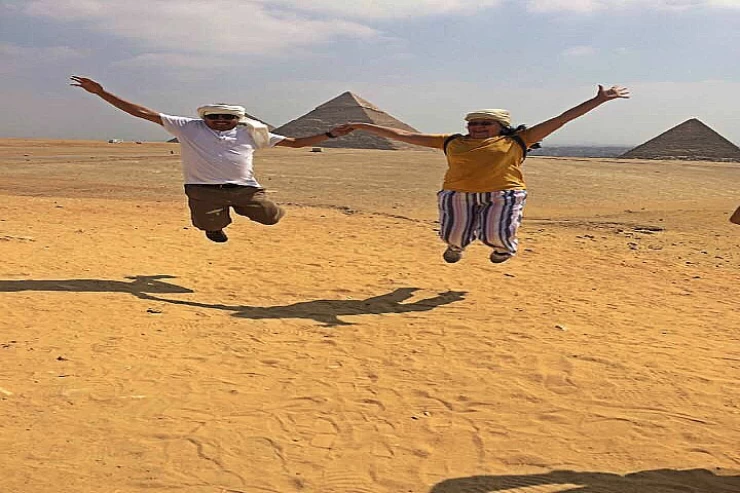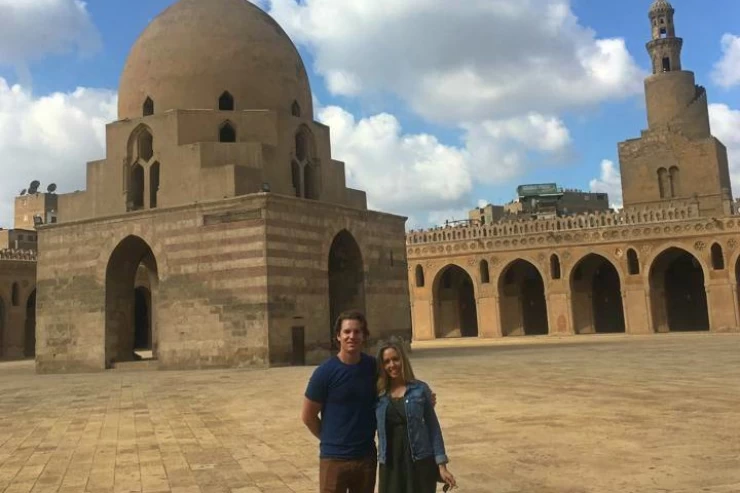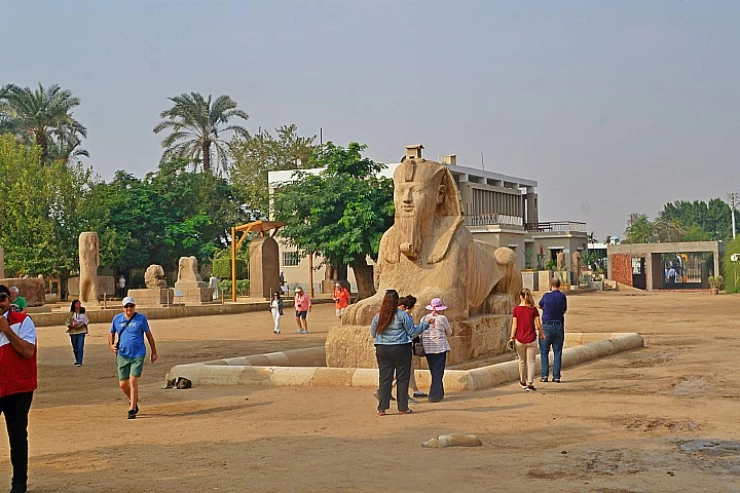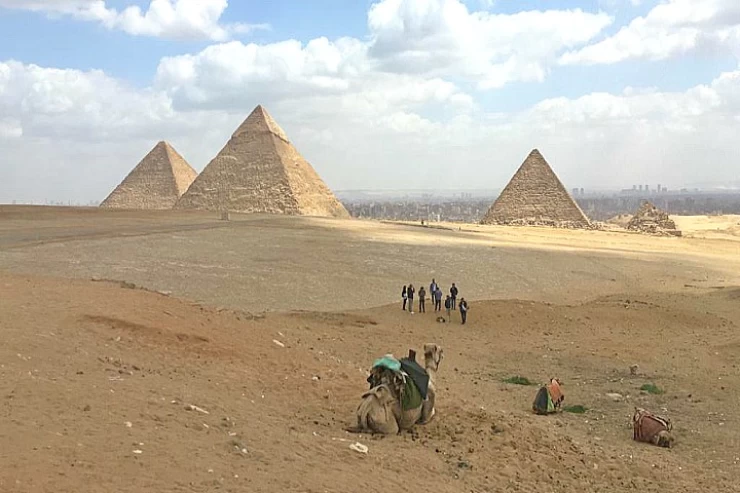Half-Day Trip to the Egyptian Museum
Overview
Today, you will enjoy a cultural visit to the heart of Cairo, where we can visit the Egyptian Museum located in Tahrir Square.
One of the largest archeological institutions worldwide is the Egyptian Museum. With more than 136 thousand Pharaonic artifacts and hundreds of thousands more in its storage rooms, it possesses the largest collection of ancient Egyptian artifacts. Mohammed Ali Pasha ordered the Department of Antiquities and the Museum to be established on June 29, 1835 AD.
After the French scientist Champollion deciphered the Rosetta Stone, there was a huge international interest in Egyptian antiquities. The museum's first nucleus was a small house at the ancient Azbakeya pond. A directive was issued in 1835 by Muhammad Ali Pasha to register the repaired Egyptian antiques and move the priceless artifacts to the Azbakeya Museum. He also gave Yusuf Dia Effendi management of the museum, overseen by Rifaa Al-Tahtawi. Rifa'a Al Tahtawi oversaw the 1835 registration of Egyptian antiquities and the transfer of priceless antiques to the Azbakeya Museum at the direction of Muhammad Ali Pasha.
You will have a great time during your tour of Cairo with Cairo Top Tours.
Today, you will enjoy a cultural visit to the heart of Cairo, where we can visit the Egyptian Museum located in Tahrir Square.
One of the largest archeological institutions worldwide is the Egyptian Museum. With more than 136 thousand Pharaonic artifacts and hundreds of thousands more in its storage rooms, it possesses the largest collection of ancient Egyptian artifacts. Mohammed Ali Pasha ordered the Department of Antiquities and the Museum to be established on June 29, 1835 AD.
After the French scientist Champollion deciphered the Rosetta Stone, there was a huge international interest in Egyptian antiquities. The museum's first nucleus was a small house at the ancient Azbakeya pond. A directive was issued in 1835 by Muhammad Ali Pasha to register the repaired Egyptian antiques and move the priceless artifacts to the Azbakeya Museum. He also gave Yusuf Dia Effendi management of the museum, overseen by Rifaa Al-Tahtawi. Rifa'a Al Tahtawi oversaw the 1835 registration of Egyptian antiquities and the transfer of priceless antiques to the Azbakeya Museum at the direction of Muhammad Ali Pasha.
You will have a great time during your tour of Cairo with Cairo Top Tours.
Inclusion
- Meet and greet services from your hotel in Cairo or Giza.
- An air-conditioned ride in an exclusive vehicle during your visits to Cairo.
- Ticket fees to the above-mentioned sites.
- Accredited English-speaking guide.
- Bottled water during the day tours of Cairo.
- Shopping tours in Cairo (on request).
- All Egypt Day Tours taxes and service charges are covered.
Exclusion
- Any extras that are not specified in the tour itinerary.
- Tipping is not included in the price of our Cairo Trips.
- Prices are valid during Christmas and New Year tours in Egypt or Egypt Easter tours.
Itinerary
In the morning and from your hotel in Cairo and Giza get ready to start one of the most impressive excursions in the capital, To ensure you enjoy every second of your trip, our guide will transport you in a private, air-conditioned vehicle.
We will enjoy touring the Egyptian Museum today, which is the oldest archeological museum in the Middle East and is home to the world's biggest collection of ancient Egyptian artifacts. Among the museum's most remarkable collections are the funerary collections of Yuya and Toya, Bosisenis I and the treasures of Tanis, and the Narmer painting that immortalizes the unification of Upper and Lower Egypt under one king. In the center of Cairo, the museum became a historical landmark after being inaugurated by Khedive Abbas Helmy II in 1902. The most magnificent artifacts from ancient Egypt are also kept there. The museum has beautiful statues of the well-known kings Khufu, Khafre, and Menkaure, who constructed the pyramids on the Giza Plateau, in addition to a substantial collection of papyri, sarcophagi, and jewelry that add to its distinctive collection.
At last, we shall return you to your Cairo lodging.
Price
| Number of Persons | Prices |
|---|---|
| 1 Person | $120 Per Person |
| 2 - 3 Persons | $75 Per Person |
| 4 - 6 Persons | $60 Per Person |
| 7 - 10 Persons | $50 Per Person |
Start from : €45
Check Availability
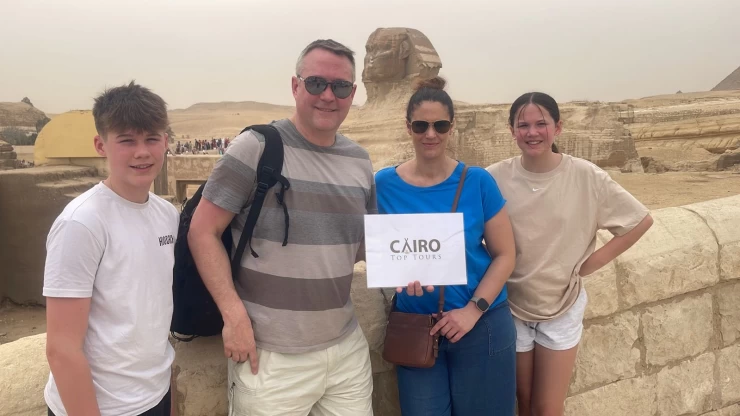
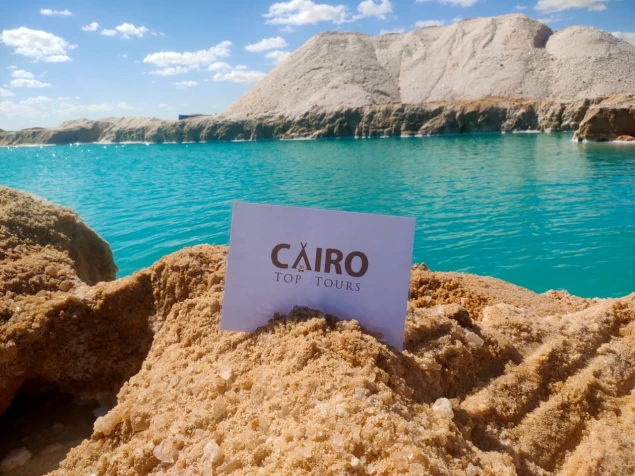
You Also May Like
Looking for something different? check out our related tour now, or simply contact us to tailor made your Egypt tour
Giza Pyramids and Egyptian Museum Trip in Cairo
If you are thinking of visiting Egypt, Cairo is your ideal destination to explore. the deep civilization of Egypt through your visit to the Egyptian Museum and the Pyramids of Giza, where you can see the magical skill of the ancient Egyptians in the art of architecture.
Egyptian Museum, Old Coptic and Islamic Cairo Trip
Discover the historic charm of Old Cairo by exploring the magnificent mosques of Islamic Cairo. Dive into the rich heritage of Coptic Cairo, home to renowned landmarks and churches that once sheltered the Holy Family and feature distinctive icons. Additionally, don’t miss the chance to visit the Egyptian Museum in Cairo, where you can marvel at its remarkable exhibits.
Cairo Day Trip to Giza pyramids, Sakkara and Memphis
See the famous pyramids of Giza and marvel in the magnificence of the Egyptian pharaohs on an amazing tour. During your trip to Cairo, explore the historic Egyptian capital, which is packed with pyramids and tombs, and learn its secrets.
Cairo Stopover Transit Trip
As you explore the lively Khan El Khalili, an open-air marketplace that provides a window into the rich customs and culture of contemporary Egypt, you'll experience a different ambiance. Meet local craftspeople, bargain for one-of-a-kind mementos, and indulge in the flavorful spices and aromas that fill this magical place.
Reviews of the Middle East and Egypt Travel
Positive customer feedback about our cheap tours of Egypt calls for our experts to accompany customers to travel around Egypt, giving history tidbits about every destination the customers visit during their Egypt and Holy Land tours. This can be seen in our foaming social media accounts, Trip Advisor, and YouTube videos. So, enough positive reviews left on Trip Advisor, YouTube videos, and our various social media accounts. About the low-cost tours that customers can enjoy in Egypt with our learned guides, who will accompany them throughout Egypt to teach them regarding each site they visit during tours of Egypt and the Holy Land.
Egypt is an important country with lots of amazing places to visit. If you want to see all the coolest stuff like the Egyptian Museum, it's a great idea to join a guided day tour. This way, you won't miss any of the most interesting things this country has to offer.
To learn about the history and ancient artifacts of Egypt, you can explore a combination of museums, historical sites, books, documentaries, and online resources. Here are some steps and resources to help you delve into Egypt's rich history and heritage:
Visit museums and historical sites:
The Egyptian Museum (Egyptian Museum of Antiquities) in Cairo is a must-visit. It houses an extensive collection of ancient Egyptian artifacts, including the treasures of Tutankhamun.
Visit historical sites like the Giza Pyramids, the Sphinx, Luxor Temple, Karnak Temple, and the Valley of the Kings to see ancient structures and artifacts in their original settings.
Guided Tours: Consider taking guided tours of historical sites and museums in Egypt. Knowledgeable guides can provide in-depth information and context about the artifacts and their historical significance.
Read books and publications:
There are numerous books and publications dedicated to Egypt's history, archaeology, and ancient artifacts. Look for titles written by renowned Egyptologists and historians.
Consider reading books like "The Oxford History of Ancient Egypt" by Ian Shaw or "Temples, Tombs, and Hieroglyphs" by Barbara Mertz (Elizabeth Peters) for comprehensive overviews.
Online Resources:
Explore reputable websites and online resources that offer information about Egyptian history and archaeology. Websites like the website of the Egyptian Ministry of Tourism and Antiquities and the Egypt Exploration Society provide valuable insights.
Utilize academic databases and research articles for more in-depth studies.
Documentaries and Films:
Watch documentaries and films about ancient Egypt. The BBC series "Egypt" and the National Geographic series "Egypt's Greatest Mysteries" are excellent options.
Online Courses and Lectures:
Consider enrolling in online courses related to Egyptology and archaeology. Universities and platforms like Coursera and edX offer such courses.
Look for lectures and talks by Egyptologists and archaeologists that are available online.
Visit Archaeological Sites:
If you have the opportunity, participate in archaeological digs or volunteer at archaeological sites in Egypt. This hands-on experience can provide a unique perspective.
Join online forums and communities:
Engage with online communities, forums, and social media groups dedicated to Egyptology and ancient history. You can ask questions, share knowledge, and learn from enthusiasts and experts.
Language Learning:
Learning some basic Egyptian Arabic or hieroglyphics can enhance your understanding of ancient Egypt and its culture.
Travel and Immerse Yourself: If possible, immerse yourself in the local culture during your visit to Egypt. Interact with locals, attend cultural events, and explore the country beyond the tourist hotspots.
The Egyptian Museum in Giza, also known as the Egyptian Museum of Antiquities or simply the Egyptian Museum (not to be confused with the Grand Egyptian Museum near the Giza Pyramids), is a renowned institution that holds immense significance in the field of archaeology and Egyptology. Its importance lies in the following aspects:
Historical Significance: The Egyptian Museum is one of the world's oldest and most comprehensive museums dedicated to the preservation and display of ancient Egyptian artifacts. It was established in 1835, making it one of the earliest museums of its kind.
Artifact Collection: The museum boasts an unparalleled collection of artifacts from ancient Egypt, spanning over 5,000 years of history. Its holdings include a vast array of items, such as statues, jewelry, mummies, papyrus scrolls, pottery, and monumental sculptures.
Tutankhamun's Treasures: One of the museum's most famous exhibits is the extensive collection of treasures from the tomb of Pharaoh Tutankhamun. These artifacts, including the iconic golden mask of Tutankhamun, provide a glimpse into the opulence and craftsmanship of the New Kingdom period.
Educational Resource: The Egyptian Museum serves as a vital educational resource for scholars, researchers, and students in the fields of archaeology, Egyptology, and ancient history. Its diverse collection offers valuable insights into the culture, religion, and daily life of ancient Egyptians.
Preservation of Heritage: The museum plays a crucial role in preserving Egypt's cultural heritage by safeguarding and conserving thousands of artifacts. It helps protect these treasures from theft, damage, and deterioration.
Tourist Attraction: As a major tourist attraction in Cairo, the museum draws visitors from around the world who come to marvel at its collection and learn about Egypt's ancient civilization.
Public Engagement: The Egyptian Museum actively engages the public through exhibitions, lectures, workshops, and educational programs. It promotes understanding and appreciation of Egypt's rich history and culture.
Research and Study: Scholars and researchers have access to the museum's extensive archives and collections for academic study and research purposes.
Cairo's Cultural Heritage: The museum is an integral part of Cairo's cultural landscape and contributes to the city's reputation as a hub of historical and archaeological significance.
Legacy: The Egyptian Museum's legacy extends beyond its walls. It has inspired generations of Egyptologists and archaeologists and continues to influence the study of ancient Egypt.
The Egyptian Museum in Cairo is one of the most popular tourist attractions in Egypt, and the best time to visit can depend on your preferences and priorities. Here are some considerations for choosing the best time to visit:
Early Morning (Opening Time): Visiting the Egyptian Museum early in the morning when it opens is often the best time to avoid crowds and have a more peaceful and enjoyable experience. The museum can get busy later in the day, so being one of the first visitors when it opens can give you a more tranquil and less crowded visit.
Weekdays: Weekdays, especially early in the week (Sunday through Wednesday), tend to be less crowded than weekends. If you can, plan your visit for a weekday to avoid larger crowds.
Off-Peak Season: Egypt has a peak tourist season, typically from late October to early April, when the weather is milder. During this period, the museum can be busier. To avoid the crowds, consider visiting during the shoulder season (late April to early June and late September to early October) or the summer months (though it can be very hot).
Avoiding Public Holidays: On public holidays and during special events, the museum can get exceptionally crowded. Check the Egyptian holiday calendar and try to plan your visit during non-holiday periods.
Late Afternoon: If you prefer a quieter experience but can't make it in the morning, consider visiting in the late afternoon. Many tourists tend to visit earlier in the day, so the museum may be less crowded in the late afternoon.
Guided Tours: Joining a guided tour can help you navigate the museum efficiently and provide you with expert insights into the exhibits. Some guided tours offer skip-the-line access, which can save you time.
Ramadan Considerations: During the Islamic holy month of Ramadan, the museum's hours of operation may be adjusted, and some exhibits or services might be affected. It's advisable to check the schedule and plan accordingly.
Plan Ahead: Regardless of the time you choose to visit, it's a good idea to plan your visit in advance. Know which sections or exhibits you want to see, and consider purchasing your tickets online to save time at the entrance.
Opening hours vary from business to business, but here’s a rough guide: offices will open from 9 a.m. to 6 p.m. or longer from Saturday to Thursday, depending on the type of business. Major banks are open from 9 a.m. to 2:00 p.m. Restaurants tend to stay open until around 12 p.m., while bars and clubs will close during the daytime, with plenty of them operating all night, particularly in popular nightlife hubs.
Popular day tours in Cairo often include visits to the Giza Pyramids, the Egyptian Museum, the Khan el-Khalili market, and other historic sites within the city.
Yes, when visiting archaeological sites in Egypt, there are certain restrictions and guidelines that tourists should be aware of to ensure a respectful and enjoyable experience.
- Respectful Behavior.
- photography and videography.
- Restricted Areas.
- Guided Tours.
- Restricted Items.
- climbing and accessing structures.
- Security Measures.
- Cultural Sensitivity.
The museum's collection includes statues, jewelry, mummies, and other artifacts from ancient Egypt. Highlights include the golden mask of Tutankhamun, the mummy room, and the royal mummy collection.
A Half-Day Tour to the Egyptian Museum is a guided excursion that allows visitors to explore one of the world's most significant museums dedicated to ancient Egyptian artifacts and treasures. The Egyptian Museum, located in Cairo, Egypt, houses an extensive collection of artifacts, including mummies, statues, jewelry, and other archaeological finds from ancient Egypt.
The Egyptian Antiquities Museum and the Luxor Museum now allow non-flash photography, as stated by PerpetualStudent86. You cannot take pictures in the Royal Mummy Rooms or the Tutankhamun Gold Room without a special ticket


Cairo Top Tours Partners
Check out our partners

